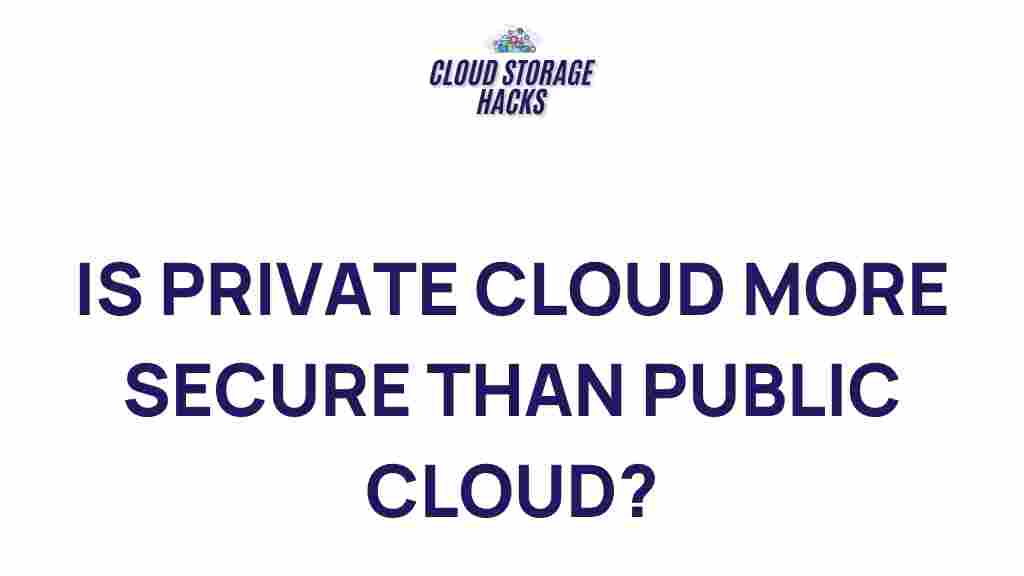Private Cloud vs. Public Cloud: Unveiling the Intriguing Security Debate
The world of cloud computing has evolved significantly over the last decade, with businesses increasingly relying on cloud-based solutions for their IT infrastructure. However, when it comes to securing sensitive data and ensuring privacy, the debate between private cloud and public cloud solutions remains an important and complex topic. In this article, we will dive deep into the security aspects of private cloud vs. public cloud, examining the pros, cons, and key differences to help you make an informed decision about the best solution for your business or organization.
What is a Private Cloud?
A private cloud is a cloud computing environment that is exclusively used by one organization. It can either be hosted on-premises or by a third-party provider. The key defining feature of a private cloud is its dedicated resources—only one client has access to the entire infrastructure, ensuring greater control and security over the environment.
What is a Public Cloud?
A public cloud, on the other hand, is a cloud infrastructure that is shared by multiple organizations or tenants. Providers like Amazon Web Services (AWS), Microsoft Azure, and Google Cloud offer public cloud services, where resources are virtualized and shared across clients. Public cloud solutions typically offer flexibility, scalability, and cost efficiency, making them an attractive option for many businesses.
Private Cloud Security: Advantages and Benefits
When evaluating the security of a private cloud, there are several key advantages that make it appealing to businesses concerned with privacy and data control. These include:
- Dedicated Resources: Since the infrastructure is solely dedicated to one organization, the risk of data breaches due to multi-tenancy is significantly reduced.
- Enhanced Data Privacy: Private cloud environments allow organizations to set strict data privacy policies, ensuring sensitive information stays within their control.
- Customizable Security Protocols: Organizations have the flexibility to tailor security measures based on their specific needs, including firewalls, encryption, and identity access management.
- Isolation from Other Users: In a private cloud, your data and applications are isolated from those of other users, minimizing the risks posed by shared resources.
- Compliance Support: Private clouds are easier to configure for compliance with industry standards such as HIPAA, PCI-DSS, and GDPR, which may be challenging in a public cloud environment.
Key Security Features of Private Cloud
Private cloud solutions offer several advanced security features that cater to organizations with high-security requirements:
- Advanced Encryption: Private cloud environments often provide robust encryption methods both fo
This article is in the category News and created by CloudStorage Team
